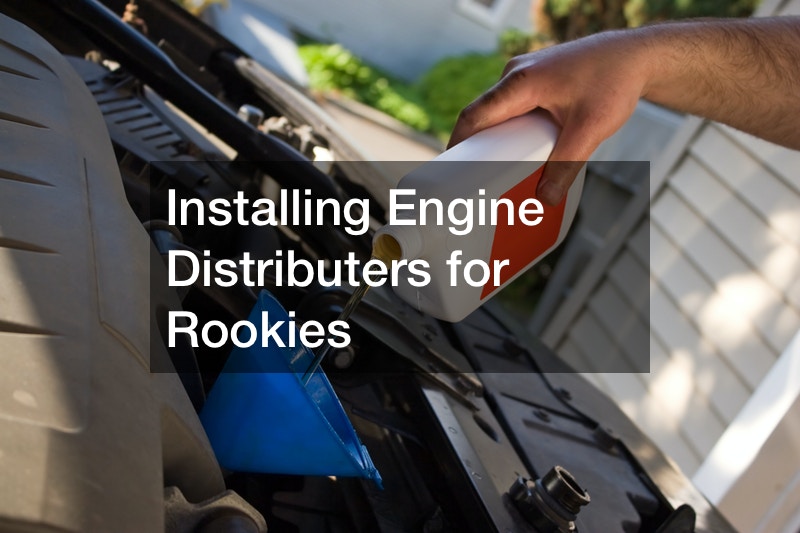What to Know Before Starting an Autobody Business


Starting an autobody business can be both a lucrative and rewarding venture. With the right planning and understanding, entrepreneurs can establish a successful operation. This article explores crucial aspects to consider and common queries related to starting an autobody business. From market research to financial management and legal compliance, this comprehensive guide aims to provide aspiring business owners with the insights needed to build and sustain a thriving auto repair shop. The demand for quality car services continues to rise, making this an opportune time to invest in a well-equipped and customer-focused auto body repair business.
What Are the Initial Steps to Start an Autobody Business?

Conducting Market Research
The foundation of any successful auto body repair shop begins with thorough market research. Understanding the demand for car services in your area helps identify your potential customer base, prevailing rates, and service gaps that your business can fill. Researching competitors’ strengths and weaknesses enables you to differentiate your offerings, whether through pricing, turnaround time, or specialized services such as vinyl wraps or fleet washing service. Staying informed about industry trends, local economic conditions, and demographic shifts provides a clearer picture of long-term viability.
Creating a Business Plan
A well-structured business plan acts as a blueprint for your auto repair shop. It should define your mission, target market, competitive advantage, marketing strategy, operational procedures, and projected financials. A comprehensive plan includes short- and long-term goals, which serve as benchmarks for performance and growth. It also becomes a critical tool when seeking loans or investors, as it communicates your vision and strategy in a clear, professional manner.
Securing Financing
Funding is essential for launching and sustaining an autobody business. Startup capital is required for equipment, real estate, staff salaries, insurance, and initial inventory. Many entrepreneurs secure financing through traditional bank loans, Small Business Administration (SBA) programs, or private investors. Preparing a detailed financial projection that outlines startup costs, breakeven analysis, and expected cash flow can strengthen your case when applying for funding. You may also explore leasing options for major equipment to reduce initial expenditures.
Finding a Suitable Location
Choosing the right location can significantly impact your business’s success. A visible, easily accessible site in a high-traffic area increases walk-in clientele and brand exposure. Consider proximity to residential neighborhoods, car dealerships, local tow truck companies, and fleet operators who may require ongoing car services. The property should be zoned appropriately for autobody operations and offer adequate space for a workshop, customer waiting area, storage, and parking. Evaluating the condition of the building and estimating renovation costs—particularly for commercial flooring installation and maintenance—is also important during site selection.
Obtaining Licenses and Permits
Operating an auto repair shop requires various licenses and permits, which vary by locality. You’ll likely need a general business license, sales tax permit, and possibly specific auto body repair certifications. Local environmental agencies may require air quality permits due to paint fumes and solvent use. It’s crucial to check with your state and municipal offices to ensure full compliance before opening your doors. Neglecting this step can lead to fines or even forced closure.
How Much Does It Cost to Start an Autobody Business?

Estimating Startup Costs
Starting an auto body repair business typically involves significant upfront investment. Costs can vary based on location, shop size, and the level of services offered. A modest shop might cost $50,000 to $150,000 to start, while a larger, more advanced facility could require $250,000 or more. Breaking down your expected costs helps you budget more effectively and determine your capital requirements.
Equipment Investment
Essential equipment includes paint booths, frame straightening machines, welding tools, compressors, and various hand tools. Investing in high-quality, durable equipment ensures reliability and can reduce long-term maintenance costs. You may also need diagnostic scanners, lifts, and computerized estimating software to meet industry standards and improve workflow efficiency. Offering services such as vinyl wraps or fleet washing service may require additional specialized tools and materials.
Facility Expenses
In addition to purchasing or leasing a building, you’ll incur expenses for remodeling, signage, utilities, and security systems. Consider the cost of installing ventilation systems and environmental controls to comply with safety regulations. Commercial flooring installation is often necessary in auto body repair shops to provide durability and chemical resistance. Insurance, property taxes, and utilities like electricity and water should also be factored into ongoing expenses.
Staffing and Training Costs
Hiring skilled technicians, estimators, and administrative staff represents a substantial portion of startup and operational costs. Competitive wages, employee benefits, and ongoing training are necessary to attract and retain top talent. Investing in staff development boosts productivity, ensures compliance with safety standards, and enhances service quality. Your team should be trained in handling a wide range of car services, from bodywork to basic car wash service options for customer convenience.
Managing Working Capital
Maintaining sufficient working capital ensures smooth day-to-day operations. It covers expenses such as payroll, materials, marketing, and unexpected repairs. Cash flow management becomes especially critical in the early months when revenue may be inconsistent. Establishing credit lines or reserve funds can help bridge short-term financial gaps.
What Skills and Training Are Required?
Understanding Technical Skills
Successful autobody business owners and technicians need a deep understanding of vehicle construction, collision repair, painting techniques, and mechanical systems. Proficiency in using specialized equipment, interpreting repair manuals, and following manufacturer specifications is essential. Technical expertise directly impacts service quality and customer satisfaction.
Pursuing Professional Certification
Certifications from organizations like I-CAR (Inter-Industry Conference on Auto Collision Repair) and ASE (National Institute for Automotive Service Excellence) signal a high level of proficiency and professionalism. These credentials not only boost your credibility but also increase your shop’s appeal to insurance companies and fleet clients.
Importance of Customer Service Skills
Technical skills must be paired with excellent customer service. Clear communication, empathy, and professionalism create a positive customer experience and encourage repeat business. Staff should be trained to provide estimates, explain repairs, and handle concerns courteously and efficiently.
Ongoing Education and Training
The automotive industry evolves rapidly due to advancements in materials, electronics, and repair methodologies. Staying current through workshops, webinars, trade shows, and certification renewals ensures your business remains competitive and compliant with changing standards.
Networking with Industry Professionals
Building relationships with suppliers, insurance adjusters, personal injury lawyers, and other shop owners provides valuable insights and business opportunities. Partnering with a personal injury lawyer, for example, can generate client referrals from accident cases needing repairs. Similarly, working with a towing service or local tow truck operator can help drive consistent business, especially after vehicle accidents.
How Do You Choose the Right Equipment and Tools?
Assessing Equipment Needs
Start by identifying the specific services your shop will offer. Whether focusing on collision repair, custom painting, vinyl wraps, or frame work, each specialization requires unique tools. Create an equipment list that aligns with your business model and service offerings.
Evaluating Quality and Reliability
Equipment is a long-term investment, so quality and reliability should be top priorities. Research manufacturers, read reviews, and seek recommendations from experienced shop owners. Prioritize brands known for performance, durability, and service support.
Cost vs. Benefit Analysis
While high-end equipment may come with a steeper price tag, the benefits often outweigh the cost in terms of efficiency, accuracy, and durability. Evaluate the return on investment by considering how much time and labor a particular tool will save over its lifespan.
Keeping Up with Technology
Modern autobody shops increasingly rely on computerized tools for diagnostics, measuring systems, and paint matching. Embracing technology not only improves service precision but also demonstrates professionalism and innovation to your clients.
Maintenance and Safety Considerations
Routine maintenance extends the life of your equipment and reduces downtime. Establish protocols for regular inspections, cleaning, and repairs. Safety training on tool usage protects staff and minimizes liability risks.
What Are the Legal Requirements and Regulations?

Understanding Zoning Laws
Before establishing a location, verify that the property is zoned for autobody operations. Zoning laws dictate acceptable business activities in certain areas and may affect signage, operating hours, and noise levels.
Compliance with Environmental Regulations
Autobody shops must handle hazardous materials like paints, solvents, and used oils responsibly. Compliance with EPA regulations, including proper disposal and emission control, is mandatory. Installing pollution control systems and using eco-friendly products can also enhance your shop’s reputation.
Registering Your Business
You’ll need to register your business name, obtain a federal Employer Identification Number (EIN), and choose a legal structure such as sole proprietorship, LLC, or corporation. These decisions impact taxes, liability, and administrative requirements.
Insurance Requirements
Insurance protects your business, assets, and employees. Common policies include general liability, property, workers’ compensation, and garage keepers insurance. Tailor coverage to your operations and review it regularly to ensure adequate protection.
Employment Law Considerations
Familiarize yourself with local and federal labor laws, including minimum wage, overtime, workplace safety, and anti-discrimination regulations. Establish clear employee policies and maintain documentation to avoid legal disputes.
How to Develop a Marketing Strategy?
Identifying Target Customers
Define your ideal customer profile—private vehicle owners, fleet operators, insurance referrals, or specialty car enthusiasts. Understanding your audience allows you to tailor your messaging and promotions effectively.
Developing an Online Presence
A professional website acts as your digital storefront. It should include your services, contact details, testimonials, and photo galleries of past work. Incorporating online appointment booking and live chat options can enhance customer convenience. Highlight all your offerings, from standard auto body repair to add-on car wash services and vinyl wraps.
Leveraging Social Media
Platforms like Facebook, Instagram, and YouTube are powerful tools for showcasing your work, promoting deals, and engaging with customers. Posting repair videos, before-and-after photos, and maintenance tips builds trust and credibility.
Building Customer Relationships
Exceptional service, timely communication, and follow-up create loyal customers. Offering satisfaction guarantees and requesting reviews helps build your reputation and attract new clients through word-of-mouth. Consider partnering with local businesses such as towing services and car wash service providers to offer package deals and enhance convenience for your customers.
Analyzing Competitor Strategies
Study your competitors to identify what they do well and where they fall short. Use this knowledge to improve your offerings, refine pricing, and develop unique selling propositions that set you apart.
What Are the Common Challenges in the Autobody Business?
Dealing with Competition
The autobody industry is highly competitive, especially in urban areas. Differentiating your services, offering superior customer care, and staying current with technology can help you gain and retain customers.
Managing Cash Flow
Irregular payments from insurance companies and delayed customer settlements can strain cash flow. Implementing effective billing systems, offering payment plans, and maintaining financial reserves help buffer against disruptions.
Keeping Up with Industry Changes
Technological advancements and regulatory updates require constant vigilance. Failing to adapt can leave your shop behind. Invest in training and upgrade equipment as needed to remain compliant and efficient.
Ensuring Quality Control
Consistency in service quality builds trust. Implement inspection checklists, technician performance reviews, and customer feedback loops to maintain high standards and catch issues early.
Handling Customer Complaints
Prompt, respectful resolution of customer concerns protects your reputation. Empower staff to address issues, offer remedies, and follow up to ensure satisfaction. A positive resolution can turn a negative experience into a loyalty-building opportunity.
How to Price Your Services Competitively?
Conducting a Market Analysis
Study local market rates for similar services to position your pricing effectively. Consider the quality of your work, shop overhead, and customer expectations when setting rates.
Understanding Cost Structures
Accurate pricing starts with knowing your costs. Include labor, materials, overhead, and profit margin in each estimate. This ensures sustainability and avoids underpricing that erodes profits.
Value-Based Pricing Strategies
Highlight the value you provide beyond just cost—speed, warranty, expertise, and convenience. Customers are often willing to pay more for trusted service and peace of mind.
Seasonal Pricing Adjustments
Demand may fluctuate seasonally, especially in regions with harsh winters or summer travel surges. Adjust pricing and promotions strategically to maximize revenue during peak times.
Offering Discounts and Promotions
Limited-time discounts, referral bonuses, and bundled service packages can attract new clients and encourage repeat business. Ensure that promotions are financially viable and well-advertised.
What Are the Best Practices for Financial Management?
Bookkeeping and Accounting Systems
Implement reliable accounting software to track income, expenses, and payroll. Accurate records support decision-making, tax preparation, and financial transparency.
Budgeting and Forecasting
Create monthly and annual budgets to anticipate expenses and revenue. Use forecasting tools to predict cash flow and prepare for slow periods or expansion opportunities.
Managing Accounts Receivable and Payable
Establish clear invoicing terms, follow up on late payments, and negotiate favorable terms with suppliers. Efficient management of receivables and payables protects cash flow and reduces stress.
Tax Planning and Compliance
Consult with a tax advisor to understand your obligations and identify potential deductions. Plan quarterly payments and maintain organized documentation to simplify filing and reduce liabilities.
Financial Reporting and Analysis
Regular financial reports help monitor performance and guide strategic decisions. Analyze profit margins, cost trends, and income sources to optimize operations and plan for growth.
How Do You Build a Skilled Team?

Recruiting Qualified Staff
Hire individuals with experience, certifications, and a passion for the trade. Advertise positions through industry job boards, trade schools, and local networks to attract top talent.
Employee Training Programs
Invest in structured onboarding and ongoing training to develop skills and ensure consistency. Training should cover safety protocols, repair techniques, customer service, and even handling special services such as vinyl wraps or car wash service enhancements.
Implementing Safety Protocols
A safe work environment reduces accidents and insurance claims. Provide personal protective equipment, conduct regular safety audits, and enforce compliance with OSHA standards.
Encouraging Professional Development
Support technicians in pursuing certifications and attending workshops. Offering tuition assistance and mentorship programs fosters loyalty and improves service quality.
Retention Strategies and Incentives
Keep your team motivated through competitive wages, recognition programs, and performance bonuses. Open communication, a positive workplace culture, and growth opportunities contribute to long-term retention.
Conclusion
Embarking on an autobody business can be challenging but rewarding. By understanding the multifaceted aspects of this industry, from initial planning to effective management, entrepreneurs can pave the way for success. Thorough preparation and adaptability are key components to thriving in this dynamic field. Whether you’re offering basic car services or expanding into areas like vinyl wraps, fleet washing, and towing service partnerships, a strong business foundation and customer-first approach can lead to sustainable growth and lasting success in the auto repair industry.


